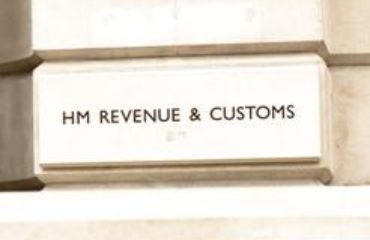
With less than a month to go before the end of the tax year, there are some essential tax saving measures that people can take before the tax year ends on 5 April
Paul Falvey, tax partner at BDO said: ‘This is the perfect time of year to review your finances and make sure you’re not missing out on any available tax reliefs – particularly as some of these reliefs become less generous from 6 April.
‘The tax system is complicated but there are some simple steps that anyone can take to make sure they are benefitting from available tax reliefs before the year end. However, for more complicated arrangements, it’s always a good idea to seek professional advice.’
1. Take advantage of tax-free pension contributions
The standard amount that an individual can set aside tax-free each year for a pension is £40,000 – and any unused relief in the prior three tax years can be brought forward. There is also a lifetime limit of £1,073,100 which is frozen until the 2025/26 tax year.
Taxpayers close to the limit should take advice on contribution levels, as exceeding the available allowance will mean a tax charge will arise.
Qualifying taxpayers who don’t receive full tax relief at source should disclose their contributions in their annual tax return to receive a rebate at their marginal rate.
2. Boost your state pension by filling gaps in your National Insurance record
You can usually pay voluntary National Insurance contributions for the past six years to fill gaps in your National Insurance record to boost your qualifying years that are used to calculate your state pension entitlement. The deadline is 5 April each year.
However, because of changes to the state pension system introduced in 2016, ‘transitional arrangements’ are in place which enable men born after 5 April 1951 or women born after 5 April 1953 to make up for gaps between tax years April 2006 and April 2016.
While the deadline to do this was meant to be 5 April 2023, this has now been extended to 31 July 2023, giving people extra time to decide whether to fill the gaps in their National Insurance record. After this time, you will only be able to pay voluntary contributions for the past six years.
Voluntary contributions will not always increase your state pension entitlement, but for those who are eligible – and depending on circumstances – a modest outlay could help top up your state pension payments. Visit www.gov.uk to find out more or seek advice from the Future Pension Centre (if you’re below state pension age) or the Pension Service (if you’ve reached state pension age).
3. Use your ISA allowances
UK residents aged 18+ can invest up to £20,000 each and parents can fund a junior ISA or child trust fund with up to £9,000 per child for 2022/23 – making a total of £58,000 for a family of four.
Children will automatically have access to the funds in their ISA when they reach age 18 but ISAs are a useful vehicle for building up funds to support them through higher education.
Investors who have not used up their full ISA allowance, should consider selling shares yielding dividends outside their ISA and buying them back within this tax-exempt wrapper, although care should be taken as this could trigger a capital gains tax charge.
4. Avoid the child benefit clawback
Child benefit is clawed back where annual taxable income (or the taxable income of a partner) exceeds £50,000.
If both partners can keep their annual taxable income below £50,000, child benefit will not be clawed back through the high income child benefit charge at a rate of 1% of the benefit for every £100 of income over £50,000.
Making personal pension contributions or exchanging salary in return for employer pension contributions can reduce your taxable income to keep it below the £50,000 threshold.
5. Use annual exemptions
Everyone can realise capital gains up to the annual exemption tax-free – £12,300 in 2022/23. The exemption is available to each individual, including minor children, but any exemption unused in a year cannot be carried forward.
Married couples and civil partners can transfer assets between them on a no gain/no loss basis and such transfers should be considered to ensure that the annual exemption can be fully used.
It is important to note that the annual exemption will be reduced from £12,300 to £6,000 from 6 April 2023 and further reduced to £3,000 from 6 April 2024.
6. Match capital gains and losses to reduce your tax bill
If you hold stocks and shares outside an ISA, selling them can trigger capital gains: where your total gains exceed the annual exemption (see above) you will pay tax on them.
If you also have investments standing at a loss, selling the asset allows you to set that loss against any gains that are taxable – either in 2022/23 or in later years (provided you claim it through your tax return). So matching gains and losses can cut your overall tax bill.
If you think the loss-making shares had long term potential, you cannot buy back them back immediately (a 30-day matching rule applies) but you can buy alternative shares in companies in the same sector, or buy them through your ISA or your spouse could invest in them.
7. Own a company? Consider paying yourself a dividend
It should generally be more tax-efficient overall to withdraw profits from your company by way of dividends rather than salary payments for 2022/23.
The position depends on a number of factors for company owner-managers but the balance will shift for some company owners when corporation tax rises from 1 April: in 2023/34 dividend payments will suffer more tax overall than salary payments if you are a higher or additional rate taxpayer.
Of course, there are other factors to consider as well: dividends are only possible if the company has sufficient ‘distributable reserves’ and may alter the value of the company’s shares up or down. Also dividends do not allow the recipient to pay tax-deductible pension contributions.
8. Entrepreneur? Consider SEIS/EIS/VCT investments
The Seed Enterprise Investment Scheme (SEIS), Enterprise Investment Scheme (EIS) and Venture Capital Trusts (VCTs) all offer tax benefits, but are really only suitable for experienced business owners and investors.
Under the SEIS, an individual can invest up to £100,000 (due to increase to £200,000 from 6 April 2023) in start-up enterprises in a tax year and claim income tax relief at 50% irrespective of his or her marginal rate of tax.
Investments in qualifying EIS companies (for example, certain companies listed on AIM or that are unlisted) attract income tax relief at 30% on a maximum annual investment of up to £1m for qualifying individuals.
Investments in VCTs provide income tax relief at 30% on qualifying investments of up to £200,000 and dividends received from the units are tax-free. In addition, the VCT can buy and sell investments without suffering capital gains tax (CGT) within the trust and there is no CGT payable on any gain made when you sell the VCT units.
9. Make gifts to use annual inheritance tax allowances
Reducing the value of the part of your estate that is above the nil rate band (£325,000) will reduce the inheritance tax (IHT) payable when you die.
Consider giving assets you do not need to other family members now. Gifts to a spouse or civil partner to enable them to use up their nil rate band are tax-free and gifts to other family members can also be tax-efficient over time.
Most lifetime gifts to individuals that are not covered by a lifetime exemption do not immediately trigger IHT and become totally exempt if you survive for seven years. Whilst the gift remains in your estate, the rate of IHT applied to it on death (40%) reduces each year depending on how many years you survive after making the gift.
You can give away up to £3,000 worth of gifts a year plus £250 to as many individuals as you like in a year and £5,000 to your children on their marriage.
10. Plan ahead for 2023-24
Plan ahead for 2023-24 by checking your tax codes. This can be done by logging into your personal tax account. Here you can inform HMRC about any changes that are likely to affect your tax code during the tax year. Helping HMRC to get it right from April onwards means you shouldn’t have any nasty surprises later.


